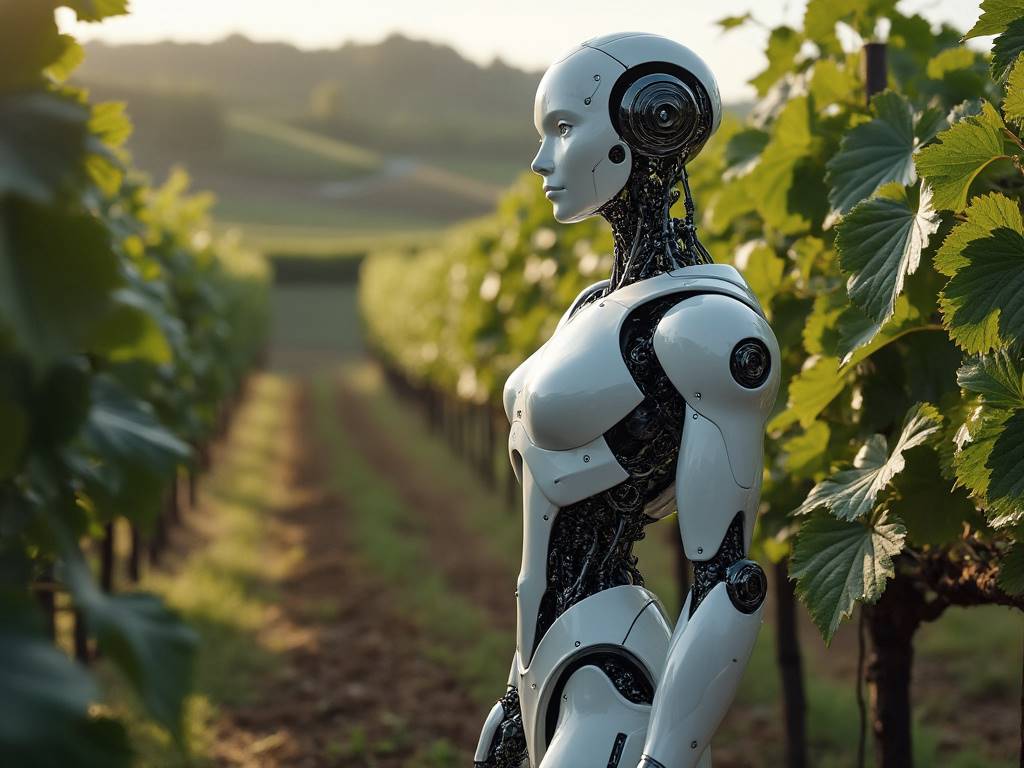Napa Valley Winery Goes High-Tech
Drones and AI redefine vineyard management
2024-12-04

The renowned Chateau Montelena winery, located in California's Napa Valley, has embraced artificial intelligence to enhance its wine production process. Known for its pivotal role in establishing American wines on the global stage, this historic winery is utilizing advanced technological tools to refine and optimize every stage of winemaking.
In the vineyards, artificial intelligence is being used to monitor the health of grapevines through systems adapted from facial recognition technology. Vineyard workers capture images of the vines using their smartphones and upload them to a server that analyzes the data, assessing factors such as leaf angles, sunlight exposure, and water stress. The system provides tailored recommendations for irrigation and vine care, ensuring precise and personalized management for each plant.
Aerial imagery from drones and planes is also incorporated into the winery's operations. These images are processed through pattern recognition algorithms capable of detecting subtle changes in the vineyard, such as irrigation system failures, before they become visible to the human eye. Winemaker Matt Crafton explained in an interview with Bernard Marr for Forbes that these innovations enable early detection of potential issues, making vineyard management more efficient and effective than traditional manual methods alone.
One notable application of this technology is the redesign of the vineyard layout. Historically, rows of vines were planted perpendicular to roads, a practice driven more by infrastructure than by viticultural principles. Using artificial intelligence and data on solar positioning and weather patterns, Chateau Montelena determined a new alignment for its vineyards. Rows are now oriented 25 degrees east of true north, minimizing direct sun exposure during the hottest part of the day. This adjustment reduces berry temperatures by up to 15 degrees Fahrenheit, preserving vital compounds that influence the wine's aroma and flavor profile.
This reconfiguration began in 2018 with the planting of new vineyard blocks. The results are already evident in the quality of the harvested fruit. According to Crafton, the improvements have enhanced the preservation of aromatic qualities and tannins, producing wines with greater richness and complexity.
The winery's commitment to innovation also extends to bottling. Chateau Montelena uses corks manufactured by a French company that employs artificial intelligence to predict the long-term performance of each closure. These corks are guaranteed to maintain their integrity for at least 30 years, an essential feature for wines intended to age for extended periods.
Despite the significant role of artificial intelligence, Crafton emphasizes that it does not replace human creativity in winemaking. The purpose of these tools is to complement the winemaker's expertise, enabling better data interpretation and decision-making while respecting the unique attributes of each vineyard and vintage. The technology is seen as a means to deepen understanding of the terroir and the distinctive qualities of each batch of wine rather than standardizing the results.
Looking ahead, artificial intelligence is expected to play an increasingly important role in data management within the wine industry. While the sheer volume of information can be overwhelming, these tools aim to highlight the most critical data points, streamlining processes and leaving more room for creativity in the craft of winemaking.
The integration of artificial intelligence with traditional techniques illustrates how innovation can enrich an industry deeply rooted in history. Chateau Montelena exemplifies how technology can support tradition, serving as a powerful tool to maintain excellence and adapt to future challenges without compromising the artistry and humanity at the heart of fine winemaking.
Founded in 2007, Vinetur® is a registered trademark of VGSC S.L. with a long history in the wine industry.
VGSC, S.L. with VAT number B70255591 is a spanish company legally registered in the Commercial Register of the city of Santiago de Compostela, with registration number: Bulletin 181, Reference 356049 in Volume 13, Page 107, Section 6, Sheet 45028, Entry 2.
Email: [email protected]
Headquarters and offices located in Vilagarcia de Arousa, Spain.